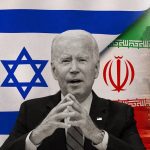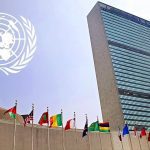At the invitation of Prince Tamim bin Hamad, President Abdel-Fattah Al-Sisi visited Qatar on 13-14 September 2022. The visit was meant to break the political stalemate that had persisted since May 2017 between Qatar and Saudi Arabia, the UAE, Bahrain, and Egypt.
The Al-Ula summit, held in January 2021, marked the beginning of the restoration of Arab relations, with the signing of the Al-Ula statement and agreeing on healing divisions between Qatar and the countries involved in the rift.
Thawing Egypt-Qatar relations was reflected in the visit of Emir Tamim bin Hamad to Egypt in June 2022 and his meeting with President Al-Sisi on the sidelines of the Baghdad Conference for Cooperation and Partnership in August 2021 and COP26 in November 2021. These meetings resulted in the restoration of diplomatic ties, with the Egyptian ambassador to Qatar Amr Al-Sherbini presenting his credentials to Emir Tamim in November 2021 and the Qatari Ambassador to Egypt Salem Mubarak Al-Shafi presenting his credentials to President Al-Sisi earlier in September 2021.
The Context of Al-Sisi’s Visit to Doha
Upon his arrival in Qatar, President Al-Sisi was received at the Hamad International Airport by Emir Tamim, who also tweeted that he was happy with President, saying: “I’m pleased with the brotherly visit of President Abdel-Fattah Al-Sisi, which [came to] bolster the Qatari-Egyptian relations and allowed us to discuss ways to achieve the aspirations of our two brotherly peoples, towards strengthening relations, serving the causes of our Arab and Islamic nation, and supporting security, peace, and stability in the region.”
These mutual high-level visits represent a positive indicator of the cooperative relations between the two countries and reflect the desire of Arab leaders to reduce tensions in the region, safeguard national interests, and ensure Arab national security in view of the new regional and international variables that necessitate promoting coordination and cooperation and easing tensions. Al-Sisi’s visit comes before several scheduled summits and events, including the next Arab summit in Algeria next November, Cop-27 in Egypt, and the 2022 World Cup in Qatar.
Economic and regional issues featured high on the agenda of the visit as reflected by the delegation accompanying the President, which comprised the Minister of Planning and Economic Development Hala Al-Saeed, Minister of Petroleum and Mineral Resources Tarek Al-Molla, Minister of Foreign Affairs Sameh Shoukry, Director of the Egyptian General Intelligence Directorate Major General Abbas Kamel, Chief of Staff of the Cabinet of the President Major General Ahmed Ali, Chief of the President’s Office Major General Mohsen Abdel Nabi, Presidential Spokesman Bassam Radi, and Egyptian Ambassador to Qatar Amr Al-Sherbini.
The agenda of the visit included meetings between President Al-Sisi and representatives of the Qatari Businessmen Association (QBA), with the participation of the Minister of Trade and Industry of Qatar Sheikh Mohammed bin Hamad bin Qassim Al Thani, Chairman of the QBA Board of Directors Sheikh Faisal bin Qassim Al Thani, and President Al-Sisi’s accompanying delegation, to explore the possibility of maximizing cooperation between the two countries, given the abundant investment opportunities in several sectors in Egypt, including renewable energy, tourism, construction, real estate development, agriculture, industry, and health care.
In the context of formal meetings between Emir Tamim bin Hamad and President Al-Sisi and the Egyptian accompanying delegation, three memoranda of understanding (MoU) were signed, one between the Sovereign Fund of Egypt and Qatar’s Investment Authority, another one on social affairs between the Egyptian Ministry of Social Solidarity and the Qatari Ministry of Social Development, and a third one on cooperation on ports.
Motives for Rapprochement
The mutual visits between Egypt and Qatar mark a significant milestone in the course of joint Arab cooperation geared towards addressing the challenges facing the region and the repercussions of international crises on it. Motives behind the Egyptian-Qatari rapprochement can be detailed as follows:
At the Bilateral Level
• Attracting Investment: The significance of the visit lies in the economic agreements signed between Egypt and Qatar to address repercussions associated with Covid-19, disruption of supply chains, shortage of grain, and the rise in oil prices as a result of the Russo-Ukrainian war, towards securing the national interests of the two countries. As such, the visit could provide a chance for greater convergence on making further investments. Qatar is projected to bring in investments of $5 billion in Egypt. Statistics indicate that Qatar ranks tenth among the countries investing in Egypt. Out of 231 businesses with a capital of $4.6 billion, Qatari investments amount to $2.2 billion, concentrated in the energy, banking, and real estate sectors.
Qatari real estate developers are carrying out several projects in Egypt. For instance, the state-owned Qatari Diar Real Estate Investment Company launched the City Gate project in East Cairo that includes over 24,000 diverse housing units. Other projects Diar is undertaking in Egypt include the New Giza project on an area of 1,500 acres in the west of Cairo and the St. Regis hotel that includes 515 hotel units. Further, the company looks forward to implementing tourism projects in Hurghada and Sharm El-Sheikh.
Additionally, the meeting that brought together CEO of the Egyptian General Authority for Investment and Free Zones Counselor Mohamed Abdel-Wahab and President of the Qatar Chamber of Commerce and Industry Sheikh Khalifa bin Jassim Al Thani in June 2022 presented an opportunity to attract Qatari investments to Egypt, where several meetings were held with Qatari companies interested in making new investments in Egypt, including Al-Fardan Group whose activities are expanding to include jewelry, real estate development, hospitality, health care, automobile, and marine and financial services. Al-Fardan Group is also considering establishing a tourist hotel in Egypt whereas Qatar Cool is considering setting up a central cooling system in the administrative capital.
Abdel-Wahab also met with Ramez Al-Khayyat, Vice Chairman and Group CEO of Al-Khayyat Holding Group, a leading company in construction and the development of civil, industrial, residential, and commercial real estate. Recently, Al-Khayyat Holding Group has acquired a stake in Juhayna. Further, Qatar Investment Authority has expressed interest in acquiring a 25 percent stake of the Eastern Tobacco Company.
Data from the Central Agency for Public Mobilization and Statistics (CAPMAS) indicates that the volume of trade exchange between Egypt and Qatar grew to $44.8 million in 2021, up from $25.4 in 2020. The Egyptian labor in Qatar is another point of convergence between the two countries. Egyptians working in Qatar are estimated at about 350,000, whose remittances amounted to $1.34 billion in 2020.
• Strengthening Energy Cooperation: The energy sector is identified as one of the high-potential cooperation areas between Egypt and Qatar, in view of Egypt’s pursuit to become a regional energy hub and Qatar’s capabilities as the largest exporter of liquefied gas in the world. Qatari investments in the Egyptian energy sector grew by the signing of an agreement between Qatar Energy and Shell, under which Qatar Energy acquired a 17 percent stake in two Shell-operated concessions (Block 3 and Block 4) in the Red Sea region. In March 2022, Qatar Energy also acquired a 40 percent stake of the North Maraca marine area in the Mediterranean run by ExxonMobil.
On the other hand, the international transformations imposed by the Russo-Ukrainian war necessitate joint coordination in the energy area, in light of the growing polarization between the USA and the West on the one hand and Russia on the other. In many respects, the war unveiled the region’s significance to the gas and oil field and the US desire to have Gulf countries increase their production of oil to meet the shortage in the global market, offering alternatives to the Russian gas.
At the Regional Level
Confronting Arab Crises: President El-Sisi’s visit to Qatar gained particular significance given the challenges the region is facing, including the mounting crises in Libya, Yemen, Syria and Somalia, along with the political crisis in Iraq and the economic crisis in Lebanon. Given the lack of consensus among the internal parties vying for power in Libya, the Libyan file comes as a top priority on Al-Sisi’s agenda, for Libya being closely linked to Egyptian national security. So maybe, the crisis could be resolved under the aegis of Qatar, in view of the meetings that Doha hosted, including primarily the meeting that brought together Qatari Emir Tamim bin Hamad Al Thani and Libyan Parliament Speaker Aguila Saleh on 11 September and Abdel Hamid Dabaiba Prime Minister of the Government of National Unity on 8 September.
In many respects, the ongoing Arab crises undermine stability in the region, which necessitates joint Arab action to tackle them. Perhaps this trend has been evidenced by the several Arab meetings held over the past months, starting with the meeting in New Alamein on 22 August in the presence of the leaders of the UAE, Jordan, Iraq, and Bahrain and the meeting of Saudi Crown Prince Mohammed bin Salman with President Al-Sisi on 20 June 2022.
• Discussing the Palestinian Cause: The visit will also promote coordination and consultation on the Palestinian cause. The Palestinian cause has always been a priority on Egypt’s foreign policy agenda. Earlier, there has been Egyptian-Qatari coordination to confront the Israeli escalation against Gaza in May 2021, where Egypt managed to broker a ceasefire agreement and launched the Gaza reconstruction project. On the other hand, the Qatari mediation between Israel and Hamas helped avoid further escalation. In August 2021, Qatar introduced a new mechanism to transfer a $360 million worth Qatari grant to Gaza to pay the salaries of the affected employees and families. As such, joint coordination and integration of roles between Egypt and Qatar becomes a necessary mechanism to achieve regional peace and stability.
Overall, the high-level visits and exchanges between Egypt and Qatar are an important indicator in the course of cooperative relations between the two countries, towards safeguarding the Arab interests in general and the national interests in particular by countering threats to Arab national security, amid the regional and global transformations that necessitate joint coordination between Arab countries, a trend that Egypt has always followed in its diplomatic moves.













